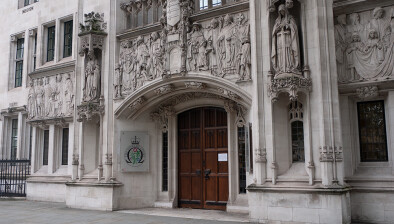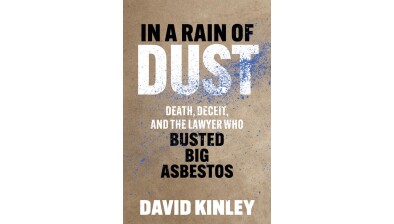Opinion: Scotland to be first in UK to regulate non-surgical cosmetic procedures

Scotland is set to be the first jurisdiction in the UK to legislate against unqualified cosmetic practitioners, write Duncan Batchelor and Claire Raftery.
In May, the Scottish Government announced plans to introduce a non-surgical cosmetic procedures bill during the current session of the Scottish Parliament. The main aim of the bill is to protect the public by ensuring that such services are provided in appropriately registered premises and by providers who meet enforced standards.
There has been concern that the cosmetic industry currently includes unqualified and untrained practitioners who may cause harm and that there may be no proper recourse available for patients if harm is done. The Scottish Government first consulted on regulation in this area in 2020, and there was broad support for it — but certain differences of opinion on exactly what the regulation should look like.
The Scottish Government’s solution is a detailed one, correlating the level of regulation to the risk involved in specific procedures. The bill requires that certain procedures are delivered from suitable premises registered with either the local authority or Healthcare Improvement Scotland (HIS). It also stipulates that certain procedures may only be performed by medical professionals.
Although it will be necessary for premises to be registered and individual practitioners to have licences, there will not be a nationwide register of practitioners. The bill includes a tiered framework, matching the risk level of treatment to the qualifications of practitioners and the premises in which they can take place.
Low risk group 1 procedures will be capable of being performed by trained, non-medical professionals, provided they are appropriately licensed. These procedures include treatments such as shallow microneedling, laser treatments and superficial chemical peels.
Unless already regulated by HIS, licences for premises and practitioners performing group 1 procedures will be granted by the local authority, which will be responsible for inspecting premises and ensuring compliance with mandatory standards. It is anticipated that the regime for group 1 procedures will be like the current regime for skin piercing and tattooing.
Moderate risk group 2 procedures will include non-surgical cosmetic procedures where substances are injected into the skin. Dermal fillers and Botox injections are in this category. These procedures will only be capable of being carried out in HIS regulated premises and only if overseen by an appropriate healthcare professional. This professional can be a doctor, a dentist, a registered prescribing nurse or a registered prescribing pharmacist. Supervision will include the healthcare professional satisfying themselves that the procedure is appropriate for the client and that the practitioner can perform it safely.
Higher risk group 3 procedures will be restricted to qualified healthcare professionals, who may only perform them in HIS regulated premises. This group includes any procedures where an anaesthetic is used and procedures such as Brazilian butt lifts.
The current intention is to impose an age limit of 18 years and over for those undergoing any non-surgical cosmetic procedure.
Legal penalties are to be introduced for individuals and businesses who do not comply with the law.
The Scottish Government has indicated the bill will be passed in the current session of parliament, which will end at some point before the next Scottish parliamentary election that must be held no later than 7 May 2026. Only time will tell whether the legislation is indeed passed in this timeframe and, if so, whether it has the desired effect of improving patient safety.
![]()
Duncan Batchelor and Claire Raftery are both partners at Clyde & Co. This article first appeared in The Scotsman.










